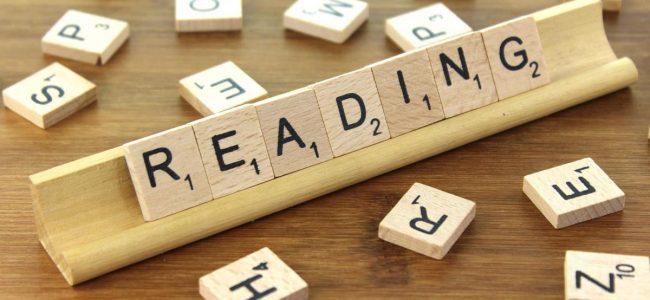A whole lot of consideration is rightly devoted by colleges to deal with major to secondary ‘transition’. We all know that as kids transfer colleges it may show a troublesome transfer emotionally. Due to this fact, our focus, fairly rightly, attends pastoral issues to supply very important help to our pupils. And but, what if we a lacking an important side of transition: the customarily dramatic shift in emphasis associated to tutorial studying.
We all know that the ‘tutorial code’ of faculty is complicated and complex. Certainly, texts at school will be laden with tutorial vocabulary that’s seldom utilized in speak in virtually any circumstance. Take this specimen examination insert from AQA GCSE Geography:
In a single passage, pupils need to grapple with ‘Tier 2’ (Isabel Beck et al.) subtle phrases and phrases like “inclined”, “civic infrastructure”, “grossly insufficient” and “desilted”, in addition to ‘Tier 3’ geographical phrases like “cyclone”, “storm surge”, “tsunami” and “delta”. Then they’re confronted with examination questions and duties which might be glossed with nuanced examination command phrases.
In fact, such difficult ‘expository writing’ (writing, or speak, that’s used to elucidate, describe or give data) happens generally in major college and more and more youthful kids are having to sort out such complicated studying challenges. Crucially nevertheless, as kids transfer into the latter a part of key stage 2, with better publicity to non-fiction texts that require numerous particular background data, they start to wrestle.
The ‘Fourth Grade Hunch’
Within the US, there’s a effectively established phenomenon of the “fourth grade stoop”. It describes the difficulty of youngsters shifting from ‘studying to learn’ (decoding, constructing their vocabulary) to ‘studying to study’. That’s to say, the kind of studying that has vital comprehension calls for and requiring numerous vocabulary and background data. For common readers, nonetheless battling a slender vocabulary and exerting effort on decoding phrases, they start to flounder.
Daniel Willingham, in ‘Why College students Don’t Like College’ (p86) describes the limitations it raises: “The problem is that there’s solely a lot room in working reminiscence, and if we attempt to put an excessive amount of stuff in there, we lose the thread of the … story we have been making an attempt to comply with”. Now, this ‘fourth grade stoop’ is the equal to 12 months 5 within the UK. We are able to see the parallels with the elevated studying demand in higher Key Stage 2.
The Studying Hole Between Main to Secondary
If we think about that the studying comprehension demand has been amped up in 12 months 5 and 6, then take into consideration the next problem. Yr 7 pupils have moved from one instructor mediating a whole curriculum within the earlier 12 months, to shifting between one thing like ten completely different lecturers, every with their very own instructing preferences, with completely different disciplinary approaches to studying in extremely topic particular domains and utilizing vocabulary far faraway from that we use in day by day speak.
Do we actually think about methods to assist our pupils cope with the ‘studying hole’ at transition?
On any given day, Megan in 12 months 7 might transfer from Historical past, to Science, to English, to Maths and Artwork. Every topic has their very own specialist lexicon. The prolonged fiction texts in English, with their acquainted story constructions, characters, and legions of verbs and adjectives show radically completely different to studying a dense expository Science textual content. Advanced nouns like ‘hydration’ in Science pack in numerous data and scientific processes (to not point out the mathematical symbols and graphs routinely used alongside the language).
We see that Science lecturers in secondary college are confronted with turning into studying lecturers. Certainly the proof is that kids at secondary college must study an entire array of topic particular languages – not simply Spanish or French.
Science proves a pertinent instance, as scientific data and understanding depends on studying fluently. We all know as an example that “For a lot of pupils the best impediment in studying science—and likewise crucial achievement—is to study its language” (Wellington & Osborne, p. 3). Alongside this, latest proof from the Royal Society and the EEF has proved that for deprived pupils, the language hole can show much more pronounced as kids transfer by way of secondary college.
We must always ask the questions:
- How effectively do secondary and first college lecturers perceive this studying hole and the completely different studying calls for in numerous college phases?
- How successfully can we talk at transition in regards to the curriculum, studying comprehension and vocabulary data?
- How effectively are major college lecturers making ready their pupils for the studying calls for of the topic pushed curriculum at secondary college?
- How can secondary college lecturers study from major about how pupils ‘study to learn’ and the precise points with studying comprehension throughout the latter a part of KS2?
The proof suggests we have to broaden our transition work past the very important work of settling in and shifting to ‘large college’. We have to work far more intently to grasp probably the most essential of educational instruments for our pupils: studying.

